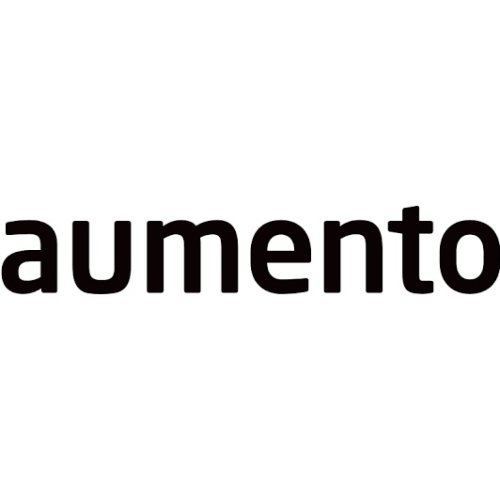Best Hiring & Firing Lawyers in Denmark
Share your needs with us, get contacted by law firms.
Free. Takes 2 min.
Or refine your search by selecting a city:
List of the best lawyers in Denmark
About Hiring & Firing Law in Denmark
Hiring and firing practices in Denmark are governed by a set of comprehensive labor laws designed to balance the interests of both employers and employees. The Danish labor market is known for its flexibility and security, commonly referred to as “flexicurity.” This system combines a flexible labor market with a robust welfare state. It offers employers the ability to rapidly adjust their workforce, while also ensuring that employees have protection against unfair dismissal and access to unemployment benefits.
Denmark follows EU directives and international conventions, incorporating them into national legislation. Employers and employees often rely on collective agreements that detail specific rights and obligations, supplementing statutory provisions.
Why You May Need a Lawyer
Several scenarios may require legal assistance in the area of hiring and firing in Denmark:
- Unfair Dismissal: If you believe you have been unfairly dismissed or terminated without proper notice, a lawyer can help assess your case and seek restitution or compensation.
- Employment Contracts: Drafting, reviewing, or negotiating employment contracts often require legal expertise to ensure compliance with Danish labor laws and to protect your interests.
- Severance Packages: Consulting a lawyer can provide clarity and ensure that severance packages are fair and conform to statutory guidelines or collective agreements.
- Non-compete Clauses: Understanding the enforceability and implications of non-compete clauses in your contract may necessitate legal advice.
- Discrimination and Harassment: If you face discrimination or harassment in the workplace, legal consultation can guide you on the appropriate steps to address these issues.
Local Laws Overview
The key legislative framework governing hiring and firing in Denmark includes the Danish Employment Contracts Act, the Danish Salaried Employees Act, and the Act on Equal Treatment. Here are some highlights:
- Employment Contracts Act: Employers are required to provide employees with a written contract outlining the essential terms of employment, including salary, working hours, and job specifications.
- Termination Notices: Notice periods for termination vary depending on factors like the employee's seniority and specific agreements. The Salaried Employees Act stipulates notice periods and compensation.
- Non-discrimination: The Equal Treatment Act prohibits discrimination based on gender, nationality, race, religion, age, and other factors in hiring and firing practices.
- Collective Bargaining: Collective agreements play a significant role and can influence terms of employment and termination. These are often nation-specific for different industries.
Frequently Asked Questions
What is the standard probation period in Denmark?
Probation periods are typically agreed upon by the parties during contract negotiation but often last three months. During this time, the notice period is shorter for termination by both parties.
Are employers required to provide a reason for termination?
While not always required for short notice periods, it is generally expected as part of the obligation to respect employee rights, especially under collective agreements.
Can an employee be dismissed without notice in Denmark?
Dismissing an employee without notice is allowed only under specific circumstances, such as gross misconduct.
Is a written employment contract mandatory in Denmark?
Yes, the Employment Contracts Act mandates a written contract for any employment relationship lasting more than one month and involving more than eight hours of work per week.
What are my rights if I am dismissed while on maternity leave?
It is illegal to dismiss an employee due to pregnancy or maternity leave. Such dismissals are regarded as discriminatory and can be legally challenged.
What legal obligations do employers have regarding non-compete clauses?
Non-compete clauses must be reasonable in duration and scope. Compensation is usually required for enforcement, particularly if they significantly restrict future employment prospects.
How are severance payments determined?
Severance payments are based on factors such as employee seniority, industry practices, and any relevant collective agreements.
Am I entitled to unemployment benefits if terminated?
Eligibility for unemployment benefits depends on factors like membership in an unemployment insurance fund (A-kasse) and whether notice periods are respected.
What happens if there is a breach of a collective agreement?
Breaches are typically addressed through negotiation between employer associations and unions. Disputes may also be resolved by the Labor Court.
What remedies are available for unfair dismissal?
Employees may seek compensation or reinstatement. Legal action through the civil courts is an option if initial negotiations fail.
Additional Resources
Here are some resources that can further assist with hiring and firing issues in Denmark:
- The Danish Trade Union Confederation (FH): Provides information on labor rights and collective agreements.
- The Danish Employment Tribunal: Handles disputes related to employment law.
- The Danish Business Authority (Erhvervsstyrelsen): Provides guidance for employers on regulatory compliance.
- Workindenmark: Offers advice on working and hiring practices in Denmark.
Next Steps
If you need legal assistance with hiring or firing in Denmark, consider the following steps:
- Consult with a labor law attorney to discuss your particular circumstances and explore your options.
- Review any relevant employment contracts or collective agreements you are part of to understand your rights and obligations.
- Gather and document all relevant information, such as employment records, termination letters, or communications, as they may be crucial in any legal proceedings.
- Consider reaching out to a local or regional trade union for advice and representation, especially if a collective agreement is involved.
- Explore mediation or dispute resolution services if appropriate, as these can often facilitate amicable solutions and reduce the need for complex legal proceedings.
Lawzana helps you find the best lawyers and law firms in Denmark through a curated and pre-screened list of qualified legal professionals. Our platform offers rankings and detailed profiles of attorneys and law firms, allowing you to compare based on practice areas, including Hiring & Firing, experience, and client feedback.
Each profile includes a description of the firm's areas of practice, client reviews, team members and partners, year of establishment, spoken languages, office locations, contact information, social media presence, and any published articles or resources. Most firms on our platform speak English and are experienced in both local and international legal matters.
Get a quote from top-rated law firms in Denmark — quickly, securely, and without unnecessary hassle.
Disclaimer:
The information provided on this page is for general informational purposes only and does not constitute legal advice. While we strive to ensure the accuracy and relevance of the content, legal information may change over time, and interpretations of the law can vary. You should always consult with a qualified legal professional for advice specific to your situation.
We disclaim all liability for actions taken or not taken based on the content of this page. If you believe any information is incorrect or outdated, please contact us, and we will review and update it where appropriate.
Browse hiring & firing law firms by city in Denmark
Refine your search by selecting a city.















